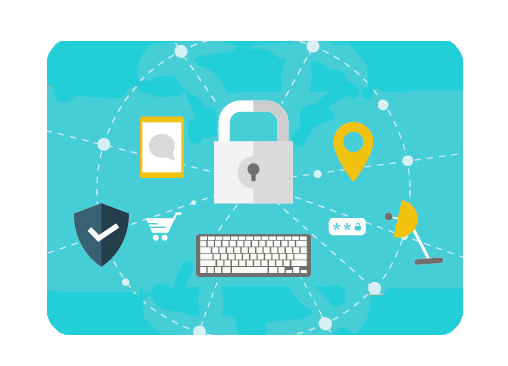Cybersecurity certifications are credentials that validate an individual’s knowledge and skills in protecting computer systems and networks from cyber threats. These certifications are essential for professionals looking to establish a successful career in the field of cybersecurity.
Overview of the importance of Cybersecurity Certifications
Cybersecurity certifications are essential in the field of cybersecurity as they validate an individual’s knowledge and skills. They demonstrate expertise, enhance career prospects, and ensure the protection of computer systems and networks from cyber threats.
Benefits of obtaining Cybersecurity Certifications
Obtaining cybersecurity certifications offers several benefits, including validating skills and knowledge, improving career prospects and earning potential, staying updated with the latest trends and technologies, and gaining credibility and recognition within the industry.
Certified Information Systems Security Professional (CISSP)
Certified Information Systems Security Professional (CISSP) is a highly recognized cybersecurity certification that validates an individual’s expertise in designing, implementing, and managing effective security programs. CISSP-certified professionals have demonstrated their knowledge across eight domains of cybersecurity, including security and risk management, asset security, communication and network security, security operations, and more. With this certification, professionals can explore various career opportunities in cybersecurity, such as security consultant, IT auditor, security manager, and security analyst.
CISSP Certification requirements and exam details
To obtain the CISSP certification, candidates must have a minimum of five years of professional experience in at least two of the eight domains covered in the CISSP Common Body of Knowledge (CBK®). They must also pass the CISSP exam, which consists of 100-150 multiple-choice and advanced innovative questions. The exam covers topics such as security and risk management, asset security, communication and network security, security operations, and more. Candidates must achieve a minimum passing score of 700 out of 1000 to earn the certification.
CISSP Certification career opportunities
CISSP Certification opens up a wide range of career opportunities in the field of cybersecurity. Certified professionals can work as security consultants, security managers, security analysts, IT auditors, and more.
Certified Ethical Hacker (CEH)
The Certified Ethical Hacker (CEH) certification equips professionals with the skills and knowledge to identify vulnerabilities in systems and networks, helping organizations strengthen their cybersecurity defenses.
CEH Certification skills and knowledge covered
The CEH certification covers various skills and knowledge related to ethical hacking, such as network scanning, system hacking, malware analysis, cryptography, and social engineering techniques.
CEH Certification exam preparation tips
To prepare for the CEH Certification exam, candidates should review the official study material, practice with hands-on labs, and take mock exams. They should also participate in training courses and join study groups to enhance their knowledge and skills.
CompTIA Security+
CompTIA Security+ is a highly respected cybersecurity certification that validates the skills and knowledge required to secure networks, systems, and applications. It covers topics such as threat management, cryptography, and network infrastructure.
CompTIA Security+ Certification overview
CompTIA Security+ is a highly respected cybersecurity certification that validates the skills and knowledge required to secure networks, systems, and applications. It covers topics such as threat management, cryptography, and network infrastructure.
CompTIA Security+ Certification study resources
CompTIA Security+ Certification study resources include books, practice exams, and online courses. Popular resources include “CompTIA Security+ Study Guide” by Mike Chapple and “CompTIA Security+ Practice Tests” by David Seidl.
Certified Information Security Manager (CISM)
Certified Information Security Manager (CISM) is a cybersecurity certification that validates an individual’s expertise in managing and overseeing information security programs. It is globally recognized and demonstrates competence in key security domains and job roles.
CISM Certification domains and job roles
The CISM certification covers four domains: Information Security Governance, Risk Management, Information Security Program Development and Management, and Information Security Incident Management. CISM-certified professionals can work as IT security managers, consultants, and auditors, ensuring effective security programs and incident response.
CISM Certification validity and renewal process
The CISM certification is valid for three years. To maintain their certification, CISM holders must earn continuing professional education (CPE) credits and submit an annual maintenance fee.
In conclusion, obtaining cybersecurity certifications is crucial for individuals looking to excel in the field. It provides validation of skills and knowledge, enhances career opportunities, and ensures continuous professional development.
Top 10 Popular Cybersecurity Certifications for 2024
- Certified Information Systems Security Professional (CISSP)
- Certified Ethical Hacker (CEH)
- CompTIA Security+
- Certified Information Security Manager (CISM)
- Certified Information Systems Auditor (CISA)
- Certified Cloud Security Professional (CCSP)
- Certified in Risk and Information Systems Control (CRISC)
- GIAC Security Essentials (GSEC)
- Offensive Security Certified Professional (OSCP)
- Certified Secure Software Lifecycle Professional (CSSLP)
These certifications are highly sought after in the cybersecurity field and provide professionals with the necessary skills and knowledge to protect organizations from cyber threats.
Choosing the right Cybersecurity Certification path
When deciding on a Cybersecurity Certification path, individuals should consider their career goals, level of experience, and areas of interest within the field. It’s important to research and choose certifications that align with these factors to maximize career growth and opportunities.
FAQs about Cybersecurity Certifications
- What is the importance of cybersecurity certifications? Cybersecurity certifications validate an individual’s skills and knowledge in the field, enhancing their credibility and job prospects.
- How do I choose the right cybersecurity certification path? Consider your career goals, level of experience, and areas of interest within the field when choosing a certification path.
- What are the benefits of obtaining cybersecurity certifications? Certifications demonstrate expertise, increase job opportunities, and often lead to higher salaries in the cybersecurity industry.
- What are some popular cybersecurity certifications? Some popular certifications include CISSP, CEH, CompTIA Security+, and CISM.
- What are the requirements for obtaining cybersecurity certifications? Each certification has its own specific requirements, which may include a combination of experience, education, and passing an exam.
- How can I prepare for cybersecurity certification exams? Utilize study resources such as books, practice exams, and online courses offered by certification providers.
- How long do cybersecurity certifications last? Certification validity varies, with some certifications requiring recertification every few years to ensure professionals stay up-to-date with evolving technologies and best practices.
- Can I pursue cybersecurity certifications online? Yes, many reputable certification programs offer online courses and exams for convenience and flexibility.
- Are cybersecurity certifications worth the investment? Yes, cybersecurity certifications are worth the investment as they enhance job prospects, salary potential, and provide a recognized standard of expertise in the industry.
- Can I pursue multiple cybersecurity certifications? Yes, professionals often pursue multiple certifications to broaden their knowledge and specialize in different areas of cybersecurity.
- Are there any prerequisites for cybersecurity certifications? Some certifications may have prerequisites in terms of experience or prior certifications, so it’s important to check the requirements before pursuing a specific certification.
- Are there any government-recognized cybersecurity certifications? Yes, certifications such as CISSP and CISM are often recognized by government agencies and organizations as a standard for cybersecurity professionals.
- How much do cybersecurity certifications cost? Certification costs vary depending on the provider and level of certification. It is important to factor in exam fees, study materials, and any additional training costs.
- Do cybersecurity certifications expire? Some certifications require recertification every few years, while others may have no expiration date. It is important to stay updated on the certification requirements to maintain its validity.
- Can cybersecurity certifications help me transition into the field? Yes, certifications can help individuals with a non-technical background transition into the cybersecurity field by demonstrating their commitment to learning and acquiring relevant skills.





